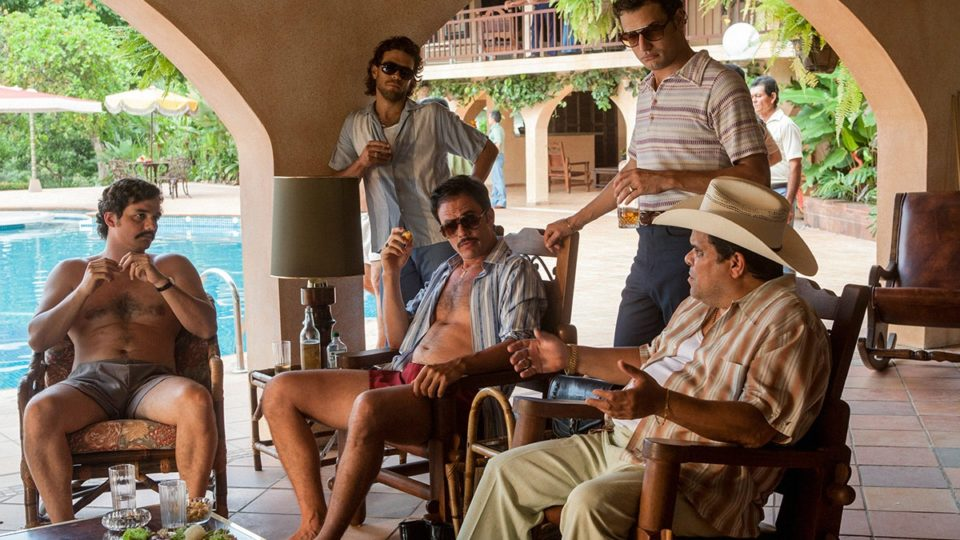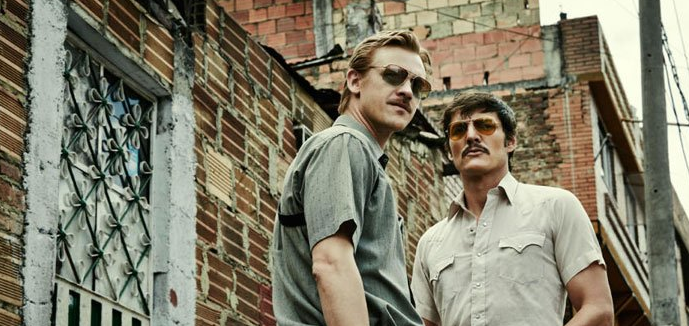In our first article of our Latin America issue, First-Year French, Spanish and German student, Amy Cartledge, asks Colombians what they really think of the Netflix hit series.
Over the years, Narcos, Netflix’s hit series, has gained huge international success. Its fast-paced action, addictive plot and stunning cinematography would surely guarantee popularity across the board. As a fan myself, I loved that it showed the beauty of South America and used Spanish-speaking actors rather than anglicising the plot. Although my opinion may be similar to that of many European and North American viewers, Colombia disagrees entirely.
Colombian nationals are tired of ‘narco-series’. They are especially tired of westernised and glorified interpretations which do not reflect the experiences of the Colombian population. Narcos is the clearest example of this. I, of course, don’t want to act like I’m speaking for the entire country’s audience. Yet when I reached out to students to gain their insight, many were eager to share their opinion about this period of history that many want to forget. Esteban gave me a deeper understanding into Colombia’s general perception of such programmes.
“Dramatizations of drug trafficking are made for profit rather than telling the true story. This can be seen when a series shows the luxury lifestyle of the traffickers, but not the suffering experienced by the Colombian community.”
Whether Narcos glorifies cartels is undisputed by Colombia’s audience. Yes, it shows their brutality. But we never see the effects they had upon normal people. Between 1996 and 2005, somebody was kidnapped every 8 hours due to the narco-conflict in Colombia. Since the start of the conflict with left-wing guerrilla groups 55 years ago, 220,000 people have died due to the drug trafficking industry; now every Colombian can claim a difficult connection to this era. When Escobar’s violence is shown in a myriad of explosions and ruthless shoot outs all you can think is – does this represent history? Or is Guamont International using such large-scale bloodshed to attract more viewers?

A scene from the hit series
(Vox)
Guamont International, a French production company, has been heavily criticised by Colombian journalists for westernising the story. The representation of gringo heroes swooping in from America to a ‘third world’ country is perceived as exalting America’s War on Drugs, ignoring the key role played by Colombians themselves. Central figures in Escobar’s downfall are completely disregarded, such as Guillermo Cano and Luis Carlos Galán, a journalist and a politician murdered for uncovering government corruption and cartels involvement in politics. They receive little to no mention in the series. The script writers clearly can’t include every single person involved in bringing down Escobar – but when completely fictionalised characters have more screen time than real people, the production of the series is likely to come under fire.
I asked if it was right that non-Colombian production companies take this story to make money; Laura and Esteban disagreed with the idea that it was wrong, as amongst Colombians there can be discussion about the events and differing opinions. A lot of the time even the nation can’t truly comprehend what happened.
“The important thing is that the story is told without profit as an end goal, that it is objective and shows different points of view regardless of nationality.”
From a linguistic standpoint, accents are a serious negative amongst the Colombian audience. They are forced to listen to a Brazilian Escobar, whose wife and mistress are Mexican, and enemies are Venezuelan, Spanish, Argentinian and Puerto Rican. Instead of presenting Escobar as a true Antioquian, speaking with the Paisa accent that is native to the area where he grew up, Wagner Moura upholds his Brazilian voice throughout the performance. Despite having moved to Medellin to perfect the local dialect, some Colombians can’t help but cringe. A whole layer of Moura’s performance is marred by his lack of vocal authenticity. By stripping Escobar of this, an integral part of his character is lost. This was something Maria, a first-year student at Bristol, agreed with when I asked if this accent was important for his portrayal. “It is, yes. The so-called gift of Escobar was that he was a young Paisa like any other who could ‘succeed”.
Starting #narcos on #Netflix. Good so far, except for the actor paying Pablo Escobar. A Brazilian? Dozens of great Colombian actors who could of played the part & not butcher the accent of a paisa. Also, plenty of great Pablo Escobar shows that have been made in Colombia.
— Louis Perea (@Louper_) 30 January 2018
Undoubtedly quick to question the popularity of the series, I asked each student what they thought of its success. Weary of this chapter of their history being considered a lucrative opportunity, all agreed Narcos was damaging Colombia’s reputation today.
“Many of the people who aren’t from Colombia that I’ve spoken to about this issue have misconceptions about present-day Colombia,” Laura tells me. “They think we are still in that era of drug trafficking and violence perpetuated by the cartels.”
This interpretation is sadly the outcome of Narcos widespread success. So next time you sit down to binge-watch a couple of episodes, it’s worth considering the other side of Escobar’s glamorous narrative: the Colombian people themselves.
Featured image: Prensa Perú









